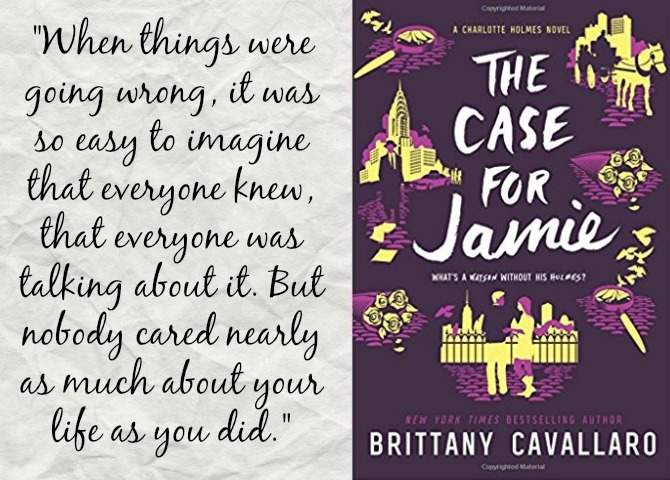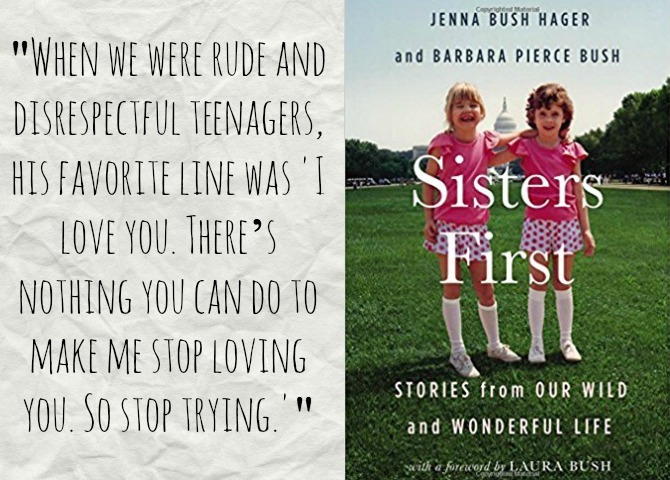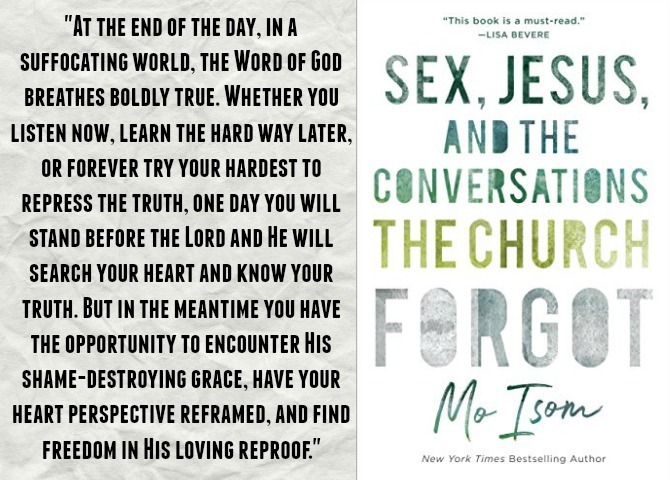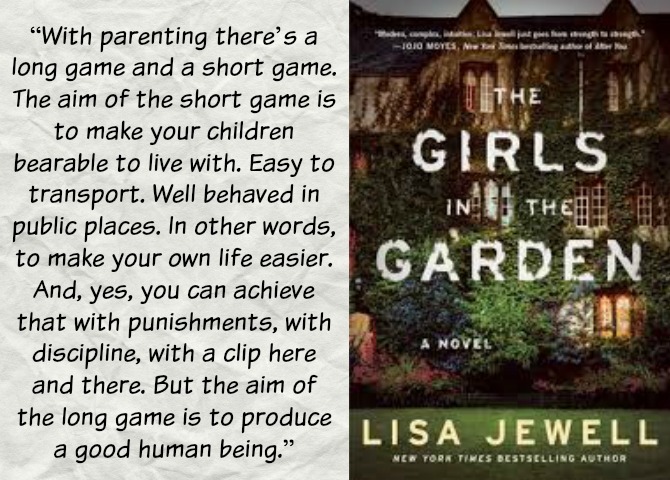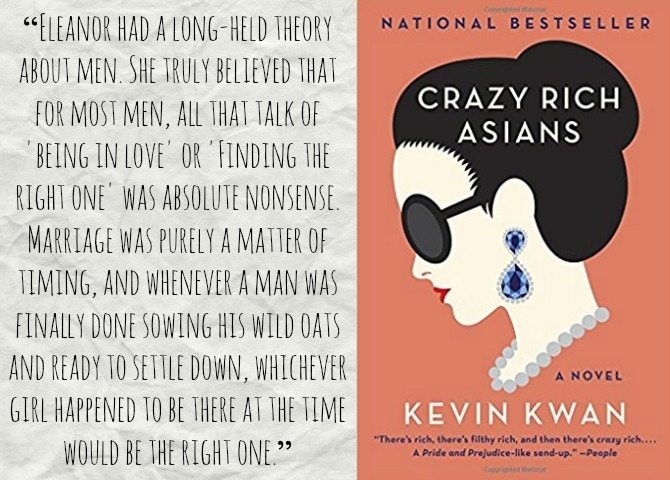I’m back today with Part Two of this week’s book reviews. The books I’m sharing today are all quite different in content, but they had something in common: I gave each book a 3.5 or 4-star rating. In other words, I liked these books but didn’t love them. But just because none were particular favorites of mine doesn’t mean they won’t be the right books for you!
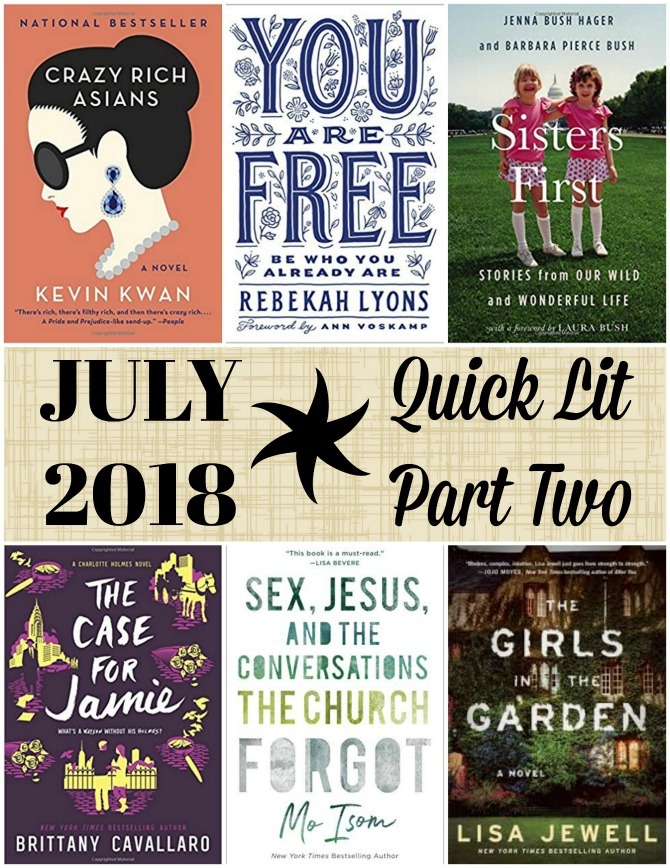
The Case for Jamie, by Brittany Cavallaro: I read the first book in this present-day Sherlock Holmes spinoff series earlier this year and I fell hard for the two teen protagonists—the brilliant but troubled Charlotte Holmes and her sensitive, loyal friend Jamie Watson. Book Two of the series left on a huge cliffhanger and I was dying to get my hands on the third book; in fact, I put in a request for my library to purchase it and was first in line to check it out when my request was fulfilled!
The story begins months after The Last of August concludes, and the dynamic partners haven’t spoken since the traumatic events that occurred in that book’s finale. Charlotte has gone rogue, attempting to hunt down her nemesis Lucien Moriarty while also waging battle against some personal demons. Jamie is wrapping up his senior year at boarding school, struggling to overcome his PTSD and doing his best to focus on his studies while trying not to pine after Charlotte. Soon Jamie finds himself under attack from an unseen enemy; will he engage in the battle? Will Charlotte emerge from hiding to come to his aid?
I was disappointed by the primary story in this novel, which is disjointed and meandering, lacking in action and suspense. The Case for Jamie is really about character development, and that (thankfully) is quite strong. Cavallaro has done an excellent job of articulating the brooding emotions of her teen protagonists, who are believable despite their fantastical lives. I enjoyed getting more insight into Charlotte’s painful upbringing and drug addiction, and it was heartbreaking to witness her attempts at conquering her pain on her own. The highlight of the novel is the Epilogue, which is charming and witty and nearly made up for the previous lackluster chapters.
While I wish this book had contained more story, I’m still a huge fan of this series and am looking forward to reading what happens in Book 4!
My Rating: 3.5 Stars.
Sisters First: Stories from Our Wild and Wonderful Life, by Jenna Bush Hager and Barbara Pierce Bush: Regardless of how you feel about the Bush presidents (Daddy and W), it’s hard not to admire their values, faith, and commitment to family. I’ve always been intrigued by their clan, and this interest had me chomping at the bit to read this memoir from Jenna Bush Hager and Barbara Pierce Bush. The book contains all the expected stories about growing up in the public eye. They talk about playing in the White House when visiting their Gampy (George H. W. Bush) as little girls, and about participating in their dad’s presidential campaign. There are plenty of juicy details about their time in college where they struggled to pursue typical college life under the watchful eye of the Secret Service and media. And they talk at length about what it is like to have both a father and grandfather who have held the most powerful job in America.
This book provided all the evidence I needed to move from admiration to full on adoration of the Bush family. Barbara and Jenna are not perfect, but they are open about their shortcomings and struggles, and their sister-bond is so beautiful. A running theme throughout the book is their devotion and commitment to their father, and his to them. The book is filled with touching stories, letters, and emails illustrating the strong relationship they share. (I shared a little in last month’s What I Learned post.) The girls disagree with their Republican family members on many political views, but they respect their dad’s heart behind his decisions and appreciate his encouragement of them to follow their own convictions, even when they haven’t matched is own. I was surprised to hear how little time the family spends discussing politics, even when they were living in the White House.
I loved learning little details about various members of the Bush family: about their Gammy’s (Barbara Bush’s) feisty side, their Gampy’s (George H. W. Bush’s) endless concern for his grandchildren, of the emotional turmoil their dad experienced over sending our country to war, and of his humor and passions for cycling, baseball, reading, and painting. The girls recount the love stories of their parents and grandparents, which are all remarkably touching. Jenna’s own relationship with her now-husband, whom she met while working with him on her dad’s campaign, has all the makings of an awkwardly hilarious Rom-Com. Some of my favorite portions of the book were about the family’s relationships with other politicians and celebrities: the partisan-averse part of me was thrilled to learn of the peaceful and pleasant relationships the Bushes share with both the Clintons and Obamas (which made me wonder why, exactly, the rest of us Republicans and Democrats can’t manage to get along).
Living most of their lives in the limelight has not been easy for the first sisters, and they haven’t always handled it well, but they have matured into wise and well-adjusted adults who making the most of their privileged position. I enjoyed reading their reflections and look forward to following their individual journeys more closely in the future.
My Rating: 4 stars.
Sex, Jesus, and the Conversations the Church Forgot, by Mo Isom: Our world is sex-obsessed. Sex, in some form, makes an appearance in nearly all of the movies and television shows we consume, it’s the subject of the music we listen to, it’s at the heart of many books, it even dominates our political discussions. But Christians—who should have the most to say about sex, given how much Scripture has to say about it—remain largely mute on the subject. The one message Christians hear is that sex before marriage is wrong. But there is little discussion of what sex actually is, or how it should play out in healthy marriage relationships. In recent years, many believers are beginning to speak up about sex, and Mo Isom has devoted her entire second memoir to the subject.
Let me be clear: this IS a memoir. I went in expecting detached explanations and generalizations. But Mo shares purely from her own story, going into detail about her sexual history and sin. I admire her transparency, which is never easy, especially given the book’s taboo subject. Mo learned many lessons along her journey, a lot of which I’ve heard before (such as the value of sexual purity, the goodness of sex within the right context, and how sexual sin bleeds into other aspects of our life). She also addresses areas that have indeed been neglected by the church; she is very clear that sexual purity is about more than just abstaining from intercourse, and she dives into the problems that a Pro-Abstinence message can create (specifically related to our expectations for sex within marriage).
I appreciated Mo’s ideas and wholeheartedly agree with her message. However, I didn’t find this to be a particularly compelling read. After a while, the autobiographical portions felt drawn-out and tedious. I would have liked more exploration of what sex can and should look like within marriage, but this is a very small portion of the book as Mo has only been married a few years. This would be a great read for young, unmarried Christians, but it didn’t have a lot to offer me as a married woman who has already learned these lessons for myself.
My Rating: 3.5 stars.
The Girls in the Garden, by Lisa Jewell: Preteens Pip and Grace and their young mom, Claire, recently moved into a new home in a family-friendly neighborhood. Their dad did not come with them, as he is currently living “elsewhere” due to a devastating incident that had left the family temporarily homeless. The girls are quick to make new friends with their neighbors and spend their days enjoying the garden at the center of their idyllic community. Then tragedy strikes: while the adults are enjoying a summer party, Pip discovers her sister lying unconscious in the middle of the garden, her clothing askew. Through multiple viewpoints and alternating timelines, we learn of the distant and more recent histories of the small family and their neighbors. We discover disturbing truths about the adults and the children, and how those secrets led up to the incident at hand.
I was expecting this book to be a thriller, but it’s more of a domestic mystery. The dark tone and format (with the mystery presented at the beginning, followed by lots of backstory and character exploration) reminded me of Little Fires Everywhere (which I also liked, but didn’t love). Although this was not the book I anticipated, Girls in the Garden is a strong read, with fleshy (though unlikable) characters and chilling insights into the world of preteens. (This insight seriously terrified me, but the adult characters’ lackadaisical parenting provided some good lessons on how to curtail this Lord of the Flies-like behavior.) The setting is evocative and haunting, and gave me pause regarding my desires for a more communal living situation for our family!
My Rating: 4 stars.
Crazy Rich Asians, by Kevin Kwan: I’ve seen this book around for a while, and had avoided it because I found the title a little off-putting. However, after reading reviews from trusted (non-racist) fellow readers, I gave it a shot. Rachel Chu is a young college professor living in New York. Though she’s been dating Nicholas Young for two years, she knows little about his background, so when he flies her to Singapore to meet his family, she is in for the surprise of her life: Nick is rich. CRAZY rich! Rachel is suddenly immersed in a world of private jets, palatial homes, and cocktail dresses that cost more money than she earns in year. Rachel quickly discovers that Nick’s family isn’t too happy about her working-class background and nonexistent ties to any well-known Asian families.
This book is pure fun and completely over the top: Kwan paints a deliciously decadent portrait of the billionaire lifestyle, and his characters are hilarious, building on Asian stereotypes in the way of any social satire, while also managing to weave in some endearing storylines. This book made for fun summer reading, but it is more than just fluff, and I was surprised by how much I learned about Asian culture. I was pretty disturbed by the obsession with image and class, but I don’t doubt this is a reality in many circles, and the book’s portrayal of social dynamics and cultural values (though obviously exaggerated) gave me a better understanding of many of my own Asian friends.
I would have enjoyed this book more if it were shorter, with fewer side characters. The novel frequently deviates from the primary story to explore various family members’ backstories, and I had trouble keeping the numerous characters straight.
My Rating: 3.5 stars.
You Are Free: Be Who You Already Are, by Rebekah Lyons: Several years ago, Rebekah Lyons—a mom to three and ministry partner with her husband—began experiencing crippling anxiety and depression. She survived that trying time in her life and went on to write a book and speak about her experiences. But God wasn’t done with her or her story. Soon Rebekah realized that, for all of her triumph, she was not living a life imbued with the freedom Christ gives. In You Are Free, Rebekah shares how she has discovered freedom in various areas (freedom in purpose, freedom to love, freedom to rest and to grieve, etc.) and she invites readers to do the same.
This book came to me at the perfect time. I’ve waged numerous internal battles over the last few decades, and each time I think I’ve finally come out on the other side, I find myself swept back under. Like Rebekah, I know all about the freedom the Bible has to offer, but I’m not living fully in that freedom. It was encouraging to see that even an acclaimed Christian teacher like Rebekah has had setbacks and needs to be continually reminded of her freedom.
The writing here is lyrical and the truths are simple, yet profound. I especially loved that this book simply calls us to be who we ALREADY ARE in Christ. Jesus doesn’t say that we can be free or that we will one day be free, but that we have already been set free. To that end, this isn’t a book of right steps to take, but one of embracing the gift that we have already been given.
Rebekah’s own story is inspiring, but I enjoyed the book’s teaching elements more than the memoir portions. The personal questions at the end of each chapter were especially helpful, and I would have liked more of them.
My Rating: 4 stars.
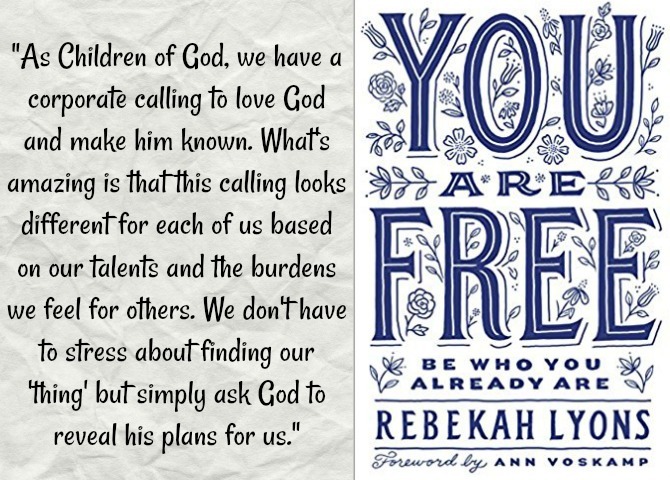
Are you familiar with any of these titles? What did you think?
